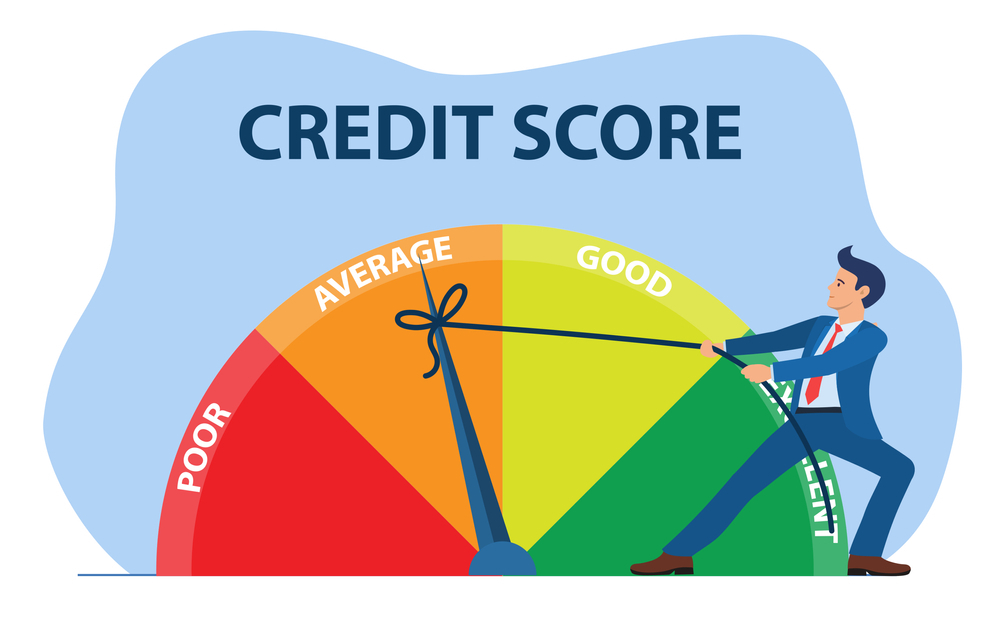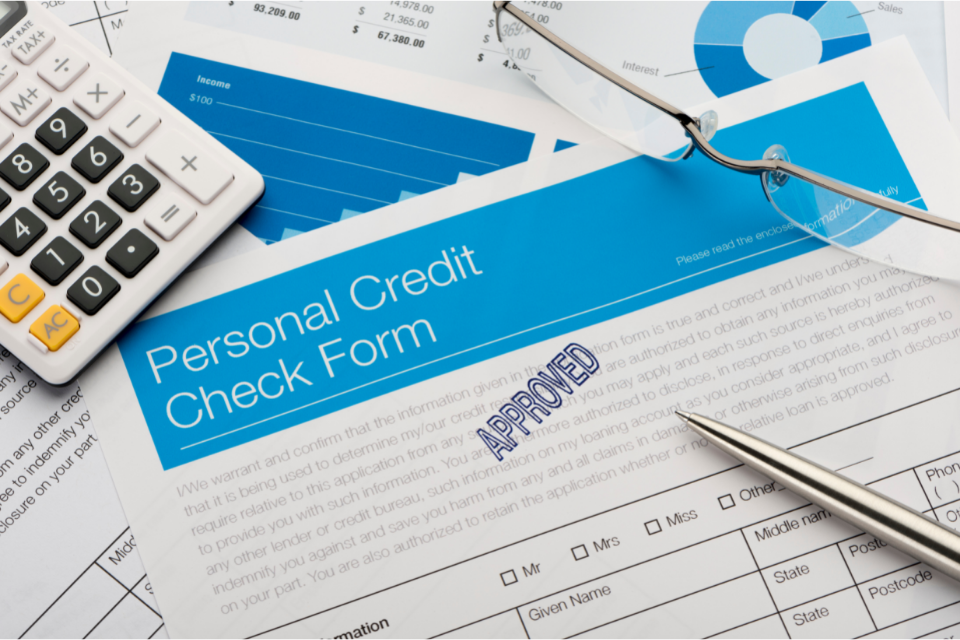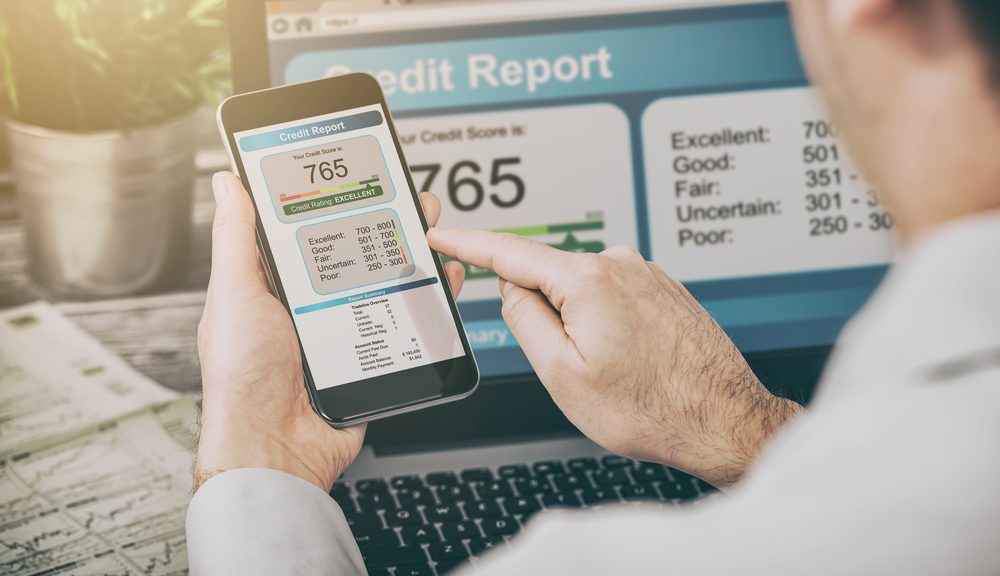Does applying for business credit affect personal credit? This is a question many entrepreneurs and small business owners grapple with, as they navigate the world of building credit for both their personal and professional lives. Understanding the nuances of how these two types of credit interact is crucial for making informed decisions that can positively impact your financial future.
While business credit and personal credit are distinct, they are not entirely independent. Applying for business credit can, in some cases, impact your personal credit score. This is because credit bureaus often use information from both personal and business credit applications to assess your overall creditworthiness. The potential impact can vary depending on factors such as your existing credit history, the type of business credit you are applying for, and the lender’s policies.
Understanding Business and Personal Credit
Business credit and personal credit are two distinct credit systems used for different purposes. While they share some similarities, understanding their fundamental differences is crucial for individuals and businesses alike.
Credit Score Calculation
Credit scores are numerical representations of an individual’s or business’s creditworthiness. They are calculated using various factors, and the specific factors and their weights can vary depending on the credit bureau. However, some common factors include:
- Payment history: This is the most important factor, representing the individual’s or business’s ability to pay bills on time. Late payments, defaults, and bankruptcies negatively impact the score.
- Credit utilization: This measures the amount of credit used compared to the total available credit. A high utilization ratio can indicate a higher risk of overspending and negatively impact the score.
- Credit history length: A longer credit history generally indicates a more reliable borrower. New credit accounts may have a lower score until they establish a track record.
- Credit mix: This refers to the different types of credit accounts an individual or business has, such as credit cards, loans, and mortgages. A diverse credit mix demonstrates responsible credit management.
- New credit inquiries: Every time an individual or business applies for new credit, it creates a hard inquiry that can slightly lower the score. Too many inquiries can signal excessive borrowing and increase risk.
Personal Credit
Personal credit is used for everyday expenses and financial needs, such as:
- Credit cards: Provide revolving credit for purchases, allowing individuals to pay over time with interest.
- Personal loans: Offer a lump sum of money for specific purposes, such as debt consolidation, home improvements, or medical expenses.
- Mortgages: Secure loans used to purchase real estate, with the property serving as collateral.
- Auto loans: Used to finance the purchase of vehicles, with the vehicle serving as collateral.
Business Credit
Business credit is used for financing business operations and growth, such as:
- Business loans: Provide funding for various business needs, including inventory, equipment, expansion, or working capital.
- Lines of credit: Offer revolving credit for business expenses, providing flexibility and access to funds as needed.
- Commercial credit cards: Offer rewards and benefits specifically designed for business expenses, such as travel points or cash back.
- Equipment financing: Allows businesses to purchase equipment with payments spread over time, freeing up cash flow for other operations.
The Impact of Business Credit Applications on Personal Credit
Applying for business credit can have a potential impact on your personal credit score, though the extent of the impact varies depending on several factors. It’s crucial to understand how business credit applications affect your personal credit score and the factors that influence this impact.
Hard Inquiries from Business Credit Applications, Does applying for business credit affect personal credit
Hard inquiries from business credit applications can negatively affect your personal credit score, similar to how hard inquiries from personal credit applications do. When you apply for business credit, lenders often pull your personal credit report to assess your creditworthiness. This inquiry is recorded on your credit report, and multiple hard inquiries within a short period can lower your score. However, the impact of these inquiries on your personal credit score is generally less significant than those from personal credit applications. This is because business credit applications are typically assessed differently than personal credit applications.
Factors Influencing the Impact of Business Credit Applications on Personal Credit
Several factors can influence the impact of business credit applications on your personal credit score, including:
- Credit History: A strong credit history with a history of responsible credit management can help mitigate the negative impact of hard inquiries from business credit applications. Lenders are more likely to overlook a few hard inquiries if your overall credit history is positive.
- Credit Utilization: Your credit utilization ratio, which is the percentage of your available credit that you’re using, also plays a role. Keeping your credit utilization low, ideally below 30%, can help offset the impact of hard inquiries.
- Credit Mix: Having a mix of different types of credit, such as credit cards, loans, and business credit, can also help improve your credit score. This demonstrates your ability to manage various credit accounts responsibly.
It’s important to note that the impact of business credit applications on your personal credit score is often less significant than the impact of personal credit applications. This is because business credit is typically evaluated separately from personal credit, and lenders often consider factors like your business revenue and financial statements when assessing your creditworthiness.
Strategies for Managing Business Credit Applications

Applying for business credit can have a significant impact on your personal credit score, but by taking proactive steps, you can minimize the potential negative effects. Understanding how business credit applications are processed and the factors that influence your score is crucial for navigating this process successfully.
Minimizing Negative Impact on Personal Credit
The impact of business credit applications on your personal credit score can be minimized by following strategic steps.
- Apply for Business Credit Only When Necessary: Only apply for business credit when you have a genuine need for it and have established a solid foundation for your business.
- Build a Strong Personal Credit Score: Before applying for business credit, focus on improving your personal credit score. This will demonstrate your financial responsibility and increase your chances of getting approved for business credit with favorable terms.
- Use a Business Credit Bureau: Use a business credit bureau to monitor your business credit report and ensure accuracy. Regularly review your report for any errors or discrepancies that could negatively affect your score.
- Maintain a Low Debt-to-Credit Ratio: Keeping your debt-to-credit ratio low for both personal and business credit accounts can positively impact your overall credit score.
- Make Timely Payments: Timely payments are crucial for maintaining a good credit score. Set up automatic payments or reminders to ensure you never miss a deadline.
Improving Your Personal Credit Score Before Applying
Before applying for business credit, consider the following steps to improve your personal credit score:
- Pay Down Existing Debt: Lowering your outstanding debt balances can significantly improve your credit score.
- Avoid Opening New Accounts: Opening too many new accounts can negatively impact your credit score, especially if you are already carrying a high debt load.
- Dispute Errors on Your Credit Report: Check your credit report for any errors and dispute them with the credit bureaus. This can help improve your score.
- Become an Authorized User: If you have a close friend or family member with good credit, consider asking to be added as an authorized user on their account. This can help improve your credit score.
Monitoring Your Credit Reports After Applying
After applying for business credit, it’s crucial to monitor your credit reports for any changes.
- Review Your Reports Regularly: Check your personal and business credit reports at least once a year for any discrepancies or errors.
- Use Credit Monitoring Services: Consider using credit monitoring services to alert you to any changes in your credit reports, including new inquiries or accounts.
- Address Any Errors Promptly: If you discover any errors on your credit report, take immediate action to dispute them with the credit bureaus.
The Benefits of Building Business Credit
Building strong business credit is a crucial step for any entrepreneur or business owner. It not only helps secure favorable financing options but also strengthens your business’s overall reputation and credibility. Establishing separate business credit allows you to build a track record of responsible financial management, which can lead to numerous advantages for your business.
Improved Access to Financing
Having strong business credit can significantly improve your chances of securing loans, lines of credit, and other forms of financing. Lenders often view businesses with good credit as less risky, making them more likely to approve loan applications and offer competitive interest rates.
- For example, a business with a strong credit score might qualify for a loan with a lower interest rate, saving thousands of dollars in interest payments over the life of the loan.
- Alternatively, a business with poor credit might struggle to secure financing at all, or they may be offered loans with extremely high interest rates that make them financially unsustainable.
Responsible Business Credit Management

Building and maintaining a positive business credit score is crucial for your company’s financial health. It unlocks access to funding, allows you to negotiate better terms with suppliers, and enhances your overall business reputation.
The Importance of Timely Payments
Promptly paying your business credit obligations is paramount for maintaining a good credit score. Late payments can negatively impact your credit rating, making it harder to secure financing in the future. Here’s why timely payments are so important:
- Credit Score Impact: Late payments are reported to credit bureaus and negatively affect your business credit score. A lower score can make it challenging to obtain loans, lines of credit, or even secure favorable lease terms.
- Increased Interest Rates: Lenders often charge higher interest rates to borrowers with poor credit history. This can significantly increase the cost of borrowing and reduce your business’s profitability.
- Limited Access to Funding: Some lenders may refuse to extend credit to businesses with a history of late payments. This can severely restrict your business’s growth potential and ability to invest in new opportunities.
- Damaged Business Reputation: A history of late payments can damage your business’s reputation and make it harder to attract new customers, suppliers, or investors.
Managing Business Credit Utilization
Maintaining a low business credit utilization ratio is essential for responsible credit management. This ratio represents the percentage of available credit you are currently using. A high utilization ratio can negatively impact your credit score.
- Credit Score Impact: Credit bureaus consider high utilization ratios as a sign of financial strain, which can lower your business credit score.
- Increased Interest Rates: Lenders may charge higher interest rates to businesses with high credit utilization ratios, as they perceive them as a higher risk.
- Limited Access to Funding: Some lenders may be hesitant to extend credit to businesses with high utilization ratios, as it can signal a lack of financial discipline.
Outcome Summary

In conclusion, while applying for business credit can potentially affect your personal credit score, it’s important to remember that building strong business credit is a valuable investment. By understanding the potential impacts, employing sound credit management practices, and utilizing the resources available, you can navigate the process effectively and build a solid foundation for your financial success.
FAQ Explained: Does Applying For Business Credit Affect Personal Credit
How does applying for business credit affect my personal credit score?
Applying for business credit can result in a hard inquiry on your personal credit report, which can slightly lower your score. However, the impact is usually minimal if you have a good credit history and are not applying for too much credit at once.
Will a business credit card affect my personal credit score?
Yes, using a business credit card can impact your personal credit score. While your business credit card activity is typically reported separately, it can still affect your overall credit utilization ratio, which is a key factor in calculating your credit score.
What are the benefits of building business credit?
Building business credit can help you secure better financing options, qualify for lower interest rates on loans, and improve your business’s overall financial standing. It can also help you establish a strong credit history for your business, which can be beneficial for future growth and expansion.
 Norfolk Publications Publications ORG in Norfolk!
Norfolk Publications Publications ORG in Norfolk!

